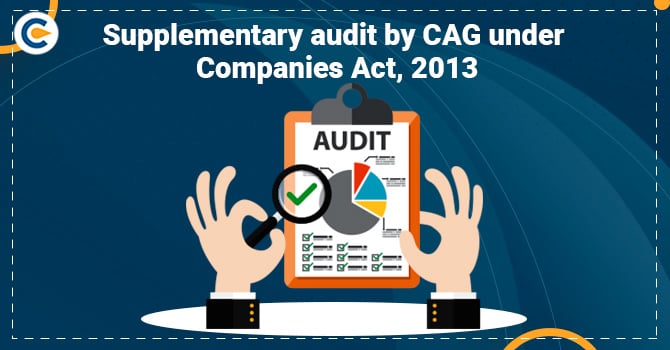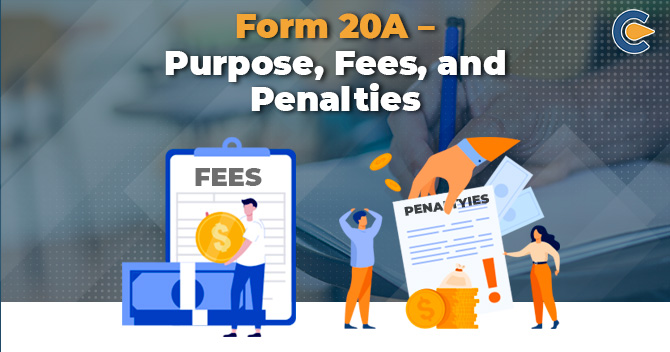An audit is a necessary term used in accounting that examines and verifies a company’s financial Information. An audit is to ensure that the company’s financial Information is represented fairly and accurately following the relevant accounting standards. In this article, we will discuss the supplementary Audit by CAG under the Companies Act,2013[1].
Why is an Audit necessary for every company?
Auditing is essential to ensure that companies represent their financial situation fairly and accurately and follow accounting standards.
Without proper regulations and standards, the company can easily misrepresent their financial positioning to make it appear more profitable or financially attractive than they are.
Who can appoint an auditor as per the Companies Act, 2013?
The purpose of the auditors is to protect the interests of the shareholders, and the appointment of an auditor depends upon the type of company.
In the case of Government Company-Section 137(7) of the Companies Act,2013
Appointment of the first Auditor -In case of Government company or any company governed or owned directly and indirectly by the government. The first Auditor in these companies shall be appointed by the CAG (Comptroller and Auditor General of India). The appointment shall be made within 60 days from the date of registration of the company.
If CAG does not Appoint the first Auditor, the Board of Directors shall appoint the Auditor within the next 30 days.
However, in case the board fails to appoint the first Auditor within the said period, the Members can also appoint at an EGM within 60 days of such Information.
In case of any other Company
The BODs shall appoint the first Auditor within 30 days from the date of registration of the company. However, in case of failure of appointment by BOD, an Appointment can also be made by shareholders at the Extraordinary General Meeting within 90 days of such intimation by the BOD.
Subsequent Appointment
For Government company-
The Comptroller and Auditor General make the Subsequent appointment of Auditor of India within 180 days from the beginning of the financial year.
Other than Government company-
After the first AGM, every company shall appoint an individual/firm auditor. The appointed Auditor shall hold the office from the conclusion of the 1st Annual general meeting till the conclusion of 6th AGM.
Role and Power of CAG under Companies Act, 2013
The Audit of the accounts of governement-based companies is administered by the Comptroller and Auditor General of India. Also, the appointment and re-appointment of the government company are made by the Comptroller and Auditor General of India. It further specifies that the Comptroller and Auditor General of India shall have the power to.
- Instruct the statutory Auditor to conduct the Audit in a stated manner,
- Give directions on any matter relating to the performance of his functions,
- Conduct a supplementary audit or test audit himself.
- Give observation or supplement the audit report in such manner as he thinks fit.
The comments of the Comptroller & Auditor General of India are to be placed before AGM along with Auditor’s Report.
What is Supplementary Audit by CAG?
As per the provisions of Section 139 &143 of the Companies Act 2013, The accounts of the Government Companies (including Companies deemed to be Government Companies are audited by the Comptroller and Auditor General of India (CAG). Also, the accounts certified by the Statutory Auditors appointed by the CAG are subject to supplementary Audit by CAG or the CAG officers. The CAG gives his observation or supplements the reports of the Statutory Auditors.
Availability of adopted and audited account at the time of Supplementary Audit by CAG
It is the company’s responsibility to make available the financial statements/any other statements/documents required under the Companies Act, 2013 to be attached in the annual accounts duly adopted by the board of directors. Also, the same shall be audited by the statutory Auditor to the Accountant General (Audit) by giving sixty days for conducting supplementary Audit.
The observation and comment given by the Comptroller and Auditor General on the audit report shall be sent by the company to every officer entitled to copies of audited financial statements and also be presented before the AGM of the company at the same time and in the same manner as the audit report.
Scope of Supplementary Audit by CAG
It is the primary responsibility of the Statutory Auditor to communicate an opinion on the accounts of the company. Supplementary Audit by the CAG is mainly an indicator of cross-checking of Financial Audit of accounts that begins with watchful selection of the Statutory Auditor and continues with the work in progress over sight, including review of the conclusions cited in his audit report.
The scope of supplementary Audit by the Comptroller & Auditor General shall include an examination of selected accounting records and a review of the audit report of the Statutory Auditor, including the observations expressed by him on the accounts of the company.
Various Aspects covered under Supplementary Audit by CAG
The supplementary Audit by CAG in the audit report of the Statutory Auditors broadly covers the below-mentioned aspects:
Authentication of the accuracy of the accounting records, books of account and financial statements prepared concerning the Accounting Standards;
Uncovering or prevention of misstatements in and falsification of the financial statements.
Uncovering the essential defects or irregularities that have been omitted, and
That the documents presented by the company do not reveal any vital information that would need to be investigated further.
Comments made in the Supplementary Audit by CAG
The notable and material observations made in the supplementary Audit shall be issued as feedbacks of the CAG after due examination of the views if any.
Conclusion
Supplementary audit by CAG is the apex responsibility for external and internal audits of the expenses of the companies. CAG can inspect any office of the company which are subject to his office and can audit the accounts and transactions related to debt, remittance, financial statements the government companies as per the Companies Act,2013.
Read our Article:Is it Mandatory to File ADT 1 for Auditor’s Appointment?











